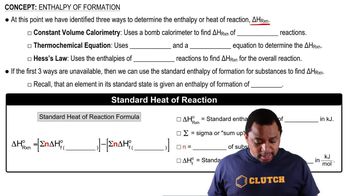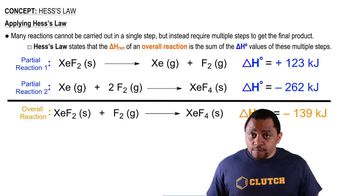Textbook Question
Write balanced equations for the formation of the following compounds from their elements. (c) Dichloromethane (a liquid, CH2Cl2)

 Verified step by step guidance
Verified step by step guidance



Write balanced equations for the formation of the following compounds from their elements. (c) Dichloromethane (a liquid, CH2Cl2)